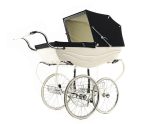Ah, yes. Back-to-school.
Back to early morning scrambles to make it out the door. Back to book bags, new shoes and sack lunches. Back to the normal routine.
I know for some that your routine is anything but routine. Rushing here and there, juggling schedules for yourself and multiple kids. Healthy, home-cooked meals often don’t make it the top of the never-ending to do list.
Heaven knows, there is enough pressure on parents (and let’s face it, most of the time, it’s Mom) to provide only the best for our kids, our spouses and other family members. But really, there is only so much time in the day, right? Meticulous meal plans and the time and effort it takes to stick with them can be something that provides great comfort to some, or they can just be another thing to make us feel like we aren’t measuring up.
Luckily, this isn’t an all or nothing game. Even an hour per week spent thinking about and preparing healthy foods can make a huge difference. The trick is to find a plan that works for your organizational style and your family, then plan to dedicate some time to both shopping and prepping food each week.
Here are some ideas that might help you find the balance you need and take the stress out of meal planning:
Fully scheduled. This is “The Full Monty” of meal planning — every breakfast, lunch, dinner and snack is accounted for. There are all kinds of templates you can find online for this type of meal planning. Start by writing in all of your dinners for the week. Figure on leftovers for lunch the next day and write that in. Then plan for any events, commitments and date nights for the rest of the week and write that in. Then, fill in breakfasts and lunches for the rest of the week and make your grocery list. Shop one day and set aside time to meal prep the next day, so you are spreading the work out a little bit. Have the kids help. They can prep their lunches for the week.
Loosely scheduled. Plan specific meals, but don’t assign them to any particular day of the week. Then, every morning, decide what you want to make for that evening and prep accordingly. This basically is the type of meal planning that I do. I never know what I am going to feel like eating on a particular day, and we tend of have a lot of last-minute things pop up in the evenings, so this kind of plan works great for us.
On-hand. Stock your kitchen so you can make whatever you feel like that night. Make a list of staples to have on-hand — veggies, fruit, nuts, frozen items. This works great for cooks who like to just throw things together without a recipe or for those that shop seasonally at the farmers market or from their garden. In the summer, this is the type of planning/cooking that I tend to do.
Monthly planning. Plan dinners for every day of the month. It sounds intimidating (well, at least it does to me), but many people love it. It is great for people that don’t like to grocery shop. Following this method you can seriously cut down your time at the grocery store. Just make sure you have enough freezer space.
Theme days. Assign each day of the week to a specific food theme to help you structure your meal plan. You can do this with different kinds of meat (Monday: Chicken; Tuesday: Beef; Wednesday: Pork; Thursday: Vegetarian, etc.), or you can do different Styles of meals. Here are some food themes to help you brainstorm: Ethnic (Mexican, Asian, Italian, etc.); salad, pizza night, breakfast for supper, soup, crockpot.
Batch cooking. Make twice as much as you need and freeze a portion. This is a great method if you know you have a big event coming up in your life like a new baby or surgery — or the first couple of weeks back to school.
Backward meal-planning. With this meal planning style, you focus on buying items that are on sale and in season to maximize your grocery budget. This is great if you are a farmers market shopper, you can plan what is in season for the week.
Eat-from-the-pantry challenge. This isn’t exactly a meal-planning method, but choosing to eat the stockpiles of food you already have in your pantry and freezer can cut down on waste and help you with your food budget.
In the end, remember that something is better than nothing. Find a plan that works for you and your family and dedicate a little bit of time to it each week can make a huge difference in the stress you feel figuring out what to feed your family for the week.
Leslie Shalabi is co-founder of Convivium Urban Farmstead, a Dubuque-based nonprofit organization based on the idea of creating community around food. A lifelong lover of food and entertaining, she is dedicated to helping people find ways to connect through the universal languages of food and hospitality.














